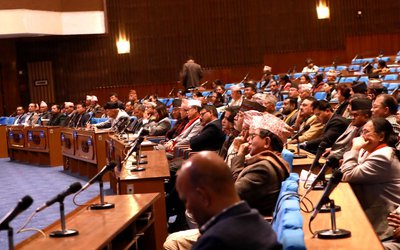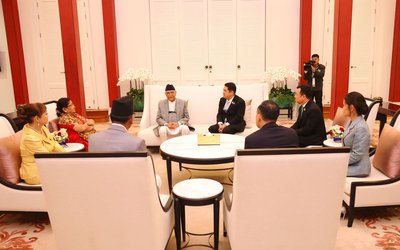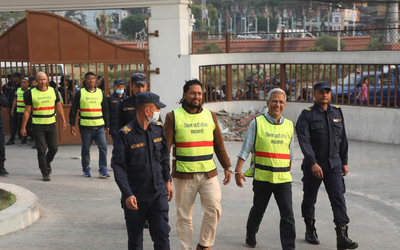More on News





Just as in climatic changes, strange things are happening in climate financing in Nepal. Despite a worldwide concern that financially-hit developed nations may not soon be able to give the climate funds they promised to poor and vulnerable ones, the country is not bothered. Reason: It has no dearth of donors.
Bilateral and Multilateral assistances continue to pour in as if they would climate-proof the entire country. But can they?
Climate science dismisses that. It calls it a mission impossible as long as the main source of human-induced climate change, carbon emissions continue to grow.
And the growth will remain with the United States now in back gear on climate agenda and dirty power plants still mushrooming across China.
The top two emitters have been enough excuses for other polluters, both the established and emerging ones, to carry on with business as usual.
So, as the concentration of greenhouse gases in the atmosphere continues to thicken, all that the poor and vulnerable countries like Nepal can try to do is adapt to the inevitable impacts of climate change.
The good news is the country is receiving money to do that.
Even better is that it now has the National Adaptation Programme of Action that has identified areas of intervention to help people cope with impacts like floods, droughts, landslides, among others.For a country so much rattled by a prolonged political instability, these are significant achievements indeed.
And, they would not have been possible without an active role of donors and, of course, the bureaucracy.
But it is only half the battle won. What remains to be dealt with now is how the assistance received from so many donors is coordinated.
The World Bank, the Asian Development Bank and the International Finance Corporation have been behind the 110 million US Dollars Strategic Programme for Climate Resilience and UN agencies are involved in a number of climate projects.
Increasing number of bilateral climate aid is making inroads as well.
The Norwegian government is giving 5.5 million US Dollars for the study of global warming’s impact in the Nepalese Himalayas and their water resources.
The British government’s Department of International Development is already involved in several climate related projects and recently the German government announced its assistance for Nepal in the same field.
The number of bilateral donors channelling climate funds through non-government organisations is also on the rise.
In September 2009, 14 bilateral and multilateral donor agencies had signed an agreement “donor compact” with the government committing themselves to help Nepal in its fight against climate change.
An indication then that flood gates for climate assistance were set to be opened.
Money since then has gushed in and continues to fill in the myriad pots.
But what about duplication of projects and donors’ lopsided priorities – as in other foreign-funded areas?
How does a caretaker government so embroiled in a political fight make sure that these things don’t happen and that it puts the money where its mouth is?
“To address that, we have brought the climate change policy,” says Environment Ministry joint secretary Batu Uprety. “The policy will help us coordinate all the foreign assistances we get in the fight against climate change.”
It won’t be long whether the policy approved by the cabinet few days ago does as he says.
It then will be clear if the right hand in climate financing knows what the left hand is doing.
Khadka is a BBC journalist






